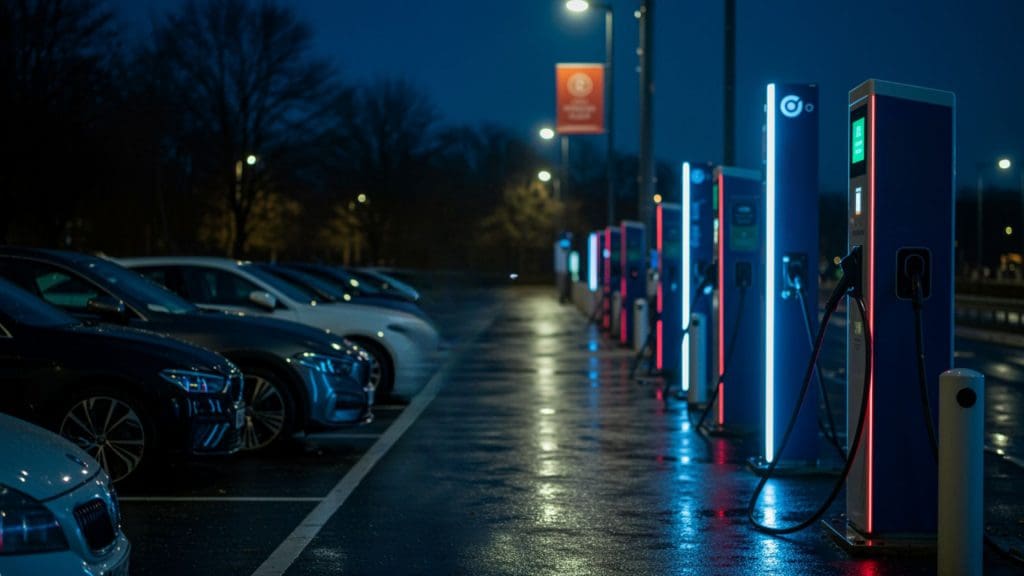The UK’s electric vehicle (EV) landscape is undergoing a significant transformation in 2025, driven by a surge in EV adoption and a concerted effort to expand charging infrastructure. Central to this evolution is the development of EV charging hubs—dedicated facilities designed to provide rapid and convenient charging solutions for the growing number of electric vehicles on British roads.
The Rise of EV Charging Hubs
EV charging hubs are becoming increasingly prevalent across the UK, offering multiple high-speed chargers in strategic locations such as motorway service areas, urban centres, and retail parks. These hubs are essential in addressing range anxiety and ensuring that EV drivers have reliable access to charging facilities.
According to recent data, the number of EV charging hubs in the UK more than doubled from to a 145% increase. This rapid growth reflects the nation’s commitment to supporting the transition to electric mobility.
Key Players in the EV Charging Hub Expansion
Several companies are at the forefront of developing and operating EV charging hubs across the UK:
- GRIDSERVE: A British energy infrastructure company, GRIDSERVE has been instrumental in establishing the UK’s first all-electric car charging forecourt in 2020. The company continues to expand its network of Electric Super Hubs, providing high-power chargers powered by 100% renewable energy.
- BP Pulse: As one of the largest public charging networks in the UK, BP Pulse operates a vast array of charging points, including ultra-fast chargers, to cater to the growing EV market.
- Ionity: EVC reports a joint venture among major automakers, Ionity has opened its largest UK high-power charging site on the M25, aiming to triple the number of public charging stations in the UK by the end of 2025.
- Fastned: Operating one of London’s busiest ultra-rapid charging hubs in Greenwich, Fastned is expanding its presence in the UK, offering up to 300 miles of range in as little as 20 minutes according to the guardian.
Government Initiatives and Policy Support
The UK government has implemented various policies to encourage the adoption of electric vehicles and the development of charging infrastructure. The Zero Emission Vehicle (ZEV) mandate requires an increasing percentage of vehicles sold each year to be electric, pushing manufacturers and infrastructure providers to accelerate their efforts.
Additionally, grants and incentives are available for the installation of home and workplace charging points, further supporting the growth of the EV ecosystem.
Challenges and Opportunities
While the expansion of EV charging hubs is promising, challenges remain. Ensuring equitable access to charging facilities across urban and rural areas is crucial. Moreover, integrating renewable energy sources and smart grid technologies will be essential to meet the increased demand sustainably.
Opportunities abound in the form of technological advancements, such as ultra-fast charging and vehicle-to-grid integration, which can enhance the efficiency and appeal of electric vehicles.
At the same time, the fraudsters are raising their game to get into the ev market by using false payment terminals and QR codes, The co-founder Tim Moore told us that it is important to protect your self by using in app payment methods, as you are then not passing over any of your card payment details
The proliferation of EV charging hubs across the UK signifies a robust commitment to embracing electric mobility. As infrastructure continues to evolve, supported by government policies and private sector innovation, the UK is well-positioned to lead in the global transition to sustainable transportation.
ONEEV continues to play its part in improving on the challenges through an in app payment, automated receipts and transparent pricing
